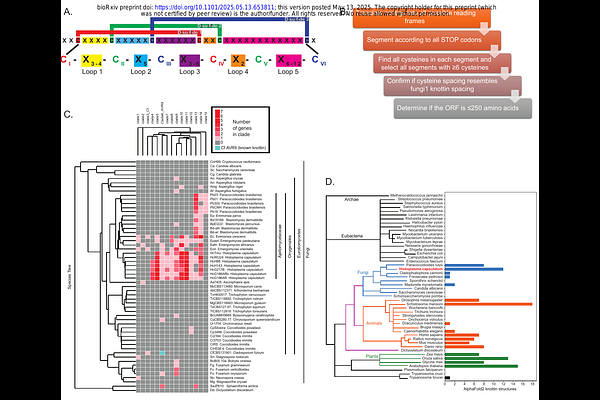A remarkable expansion of secreted cysteine knot proteins reveals novel virulence factors in the human fungal pathogen Histoplasma

A remarkable expansion of secreted cysteine knot proteins reveals novel virulence factors in the human fungal pathogen Histoplasma
Rodriguez, R. A.; Azimova, D.; Voorhies, M.; English, B. C.; Symington, J.; Sil, A.
AbstractIdentifying fungal secreted factors that influence host infection remains a key challenge in microbial pathogenesis. While secreted effectors, particularly small cysteine-rich proteins, are well characterized in plant fungal pathogens, their counterparts in mammalian pathogens remain elusive. We applied criteria from plant fungal effectors to the mammalian fungal pathogen Histoplasma, yielding a set of putative effectors highly enriched for knottins, proteins that adopt a distinctive cysteine knot fold. Using a novel algorithm, we further identified 25 putative knottins in the Histoplasma genome, revealing a significant expansion of knottin genes. Knottin domains are found in diverse molecules but play an unknown role in virulence. Functional studies of individual Histoplasma knottins demonstrated their critical roles in intracellular survival and host cell lysis during macrophage infection as well as virulence in vivo. These findings highlight the importance of knottins in fungal pathogenesis and suggest their broader relevance for discovering conserved mechanisms of host manipulation.